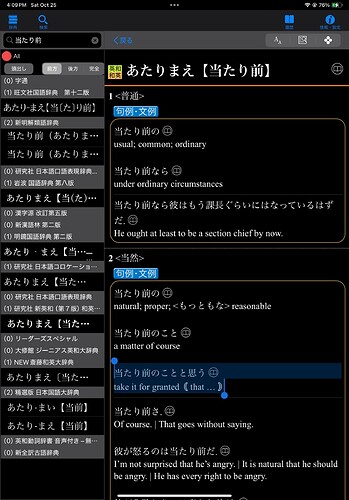Okay, this one’s just getting me and I’m wondering if someone can help me out with a couple of these. I always learned 当たり前 with the “natural” meaning, so I get that, and I get the “commonplace” side of it, but in one of the example sentences I always get wrong because I’m just not making the association between this vocab and the meaning being associated with it. The question is:
周りの人の親切を当たり前の事と思ってはいけません。
We shouldn’t take the kindness of others for granted.
This particular one I just am having a hard time understanding why it’s connected to the idea of taking something for granted. I can see it as “don’t think this is normal” but is it actually conveying a meaning of taking for granted here? Or is this a case of the “don’t take this as normal,” being sort of a saying that conveys a similar meaning, but sounds weird in English so it’s translated as, “take for granted?”
I guess I’m just trying to see if this really has “take for granted” as a meaning and I just need to really get that in my head, or if this is more connected to the other meanings in a way that my brain just isn’t wanting to grasp. I’d love if someone could explain this for me. Thank you!
I also wanted to say that I love the community here and being able to ask things like this.

